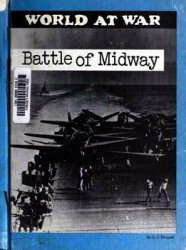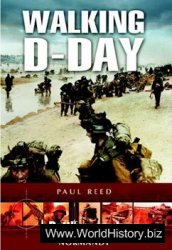Parnell received credit for the subsequent improvement in things all around, including the lessening of violence, the decline in rents, and satisfaction with land reform. In 1882 he formed a new organization, the National League, as a support group for his followers in parliament. Two years later he tightened discipline in his party by requiring any of its candidates for office to take a pledge that they would follow party direction in parliament or else resign their seat. The presence of the Irish party in parliament had already caused significant changes in the character and operation of that body. Irish obstructionist tactics had forced the formulation of stricter rules governing parliamentary procedure to allow cloture against delaying tactics by a minority. The general effect was to give the incumbent government greater control over the agenda and to lessen the role of the independent member unattached to any party, which had been characteristic of a significant number of members earlier in the century.
Parnell's discipline over his own members would parallel to some degree the pattern in the major parties, the Conservatives and the Liberals. Reform legislation governing individual expenditure by candidates for seats made them more dependent on the expenditure of funds by the party itself in campaigning. In addition, the increased size of the electorate, especially following an 1884 act, made voters less likely to know or vote for the individual candidates and more likely to vote for their party label. Hence, candidates became anxious to retain party designation by not acting too independently in parliamentary matters. If this was the situation within the major parties, where most of the candidates were men of substantial means, it applied even more to the Irish party, most of whose candidates were relatively impoverished, many being journalists or young political activists and entirely dependent on party funds to support themselves in London during sessions as members of parliament were still neither paid nor allotted expenses.
The 1884 franchise act extended to the county constituencies the same substantial lowering of the franchise that the 1867 act had done for the boroughs. Then the next year a redistricting act organized constituencies along territorial lines, abolishing the distinction between counties and boroughs, with the constituencies being approximately equal in size in terms of electors.9 All of this advanced the process of democratization and would guarantee extraordinary success for Parnell's party in the next general election. Accordingly, he worked with the Conservatives and other critics of Gladstone's ministry to bring about a parliamentary defeat that would result in a new election. The administrative changes required by the franchise and redistribution acts delayed an election for several months, allowing a Conservative ministry to govern in the interim.
This government passed a land purchase act, named the Ashbourne Act after the Irish lord chancellor, that was very generous in comparison to earlier attempts, as the government would advance the entire cost of the land, with the tenants having 49 years to pay off at only 4 percent interest, which amounted to only 70 percent of the rent a tenant was paying. So great was the response that the funds authorized were exhausted in a few years, requiring further appropriations. This was the first major step in the transformation of Ireland from a society of landlord owners to a nation of peasant proprietors.
With the approaching election, Parnell tried to advance the position of his party as the power broker in the future parliament. He urged supporters in Britain to vote for the Conservatives so as to inhibit too overwhelming a Liberal majority. He even bargained with the Conservatives as to their amenability to his primary agenda, Home Rule, that is, a distinct Irish parliament. The results of the election gave 335 seats to the Liberals, 249 to the Conservatives, and 86 to Parnell's party, putting him in the position of being able to keep the Conservatives in power should they be amenable to Irish self-government. In the interval between the election and the sitting of parliament, Gladstone's sympathy for Home Rule was made public by his son, which allowed Parnell to swing to the Liberals. Gladstone formed a government, which introduced a Home Rule bill.
The terms of the legislation included creation of a two-house Irish legislature, with the upper house to consist of 28 appointed members and 75 elected by a very restricted franchise and a lower house with 204 popularly elected members; an Irish executive responsible to that legislature; restrictions on the legislature's power with regard to foreign affairs, defense, and customs and excise; temporary continued control over the police by the British government; appellate review of the Irish courts and of the constitutionality of Irish legislation by the Privy Council in London; continued Irish contribution of one-fifteenth of the imperial budget; and the loss of Irish representation at Westminster other than for reconsideration of the Home Rule legislation. From an Irish nationalist perspective the legislation might appear disappointing as it fell short of full sovereignty, enshrined deference to the upper classes, and allotted a disproportionate share of the imperial budget to Ireland in view of the increasing difference in population between Britain and Ireland. On the other hand, it was the most advanced step toward undoing the Act of Union that had yet appeared.
However, opposition to the measure developed within the Liberal Party. The Whig faction viewed it as a capitulation to the Land League, which they had seen as a form of land communism. Also opposed was the former Radical lord mayor of Birmingham, Joseph Chamberlain, a member of the cabinet, who saw it as a step toward the dismemberment of the British Empire. He preferred imposition of social and democratic reform in Ireland from Westminster rather than through an Irish parliament. During its second reading the measure failed by a vote of 343 to 313, as 93 Liberals broke with Gladstone.




 World History
World History









